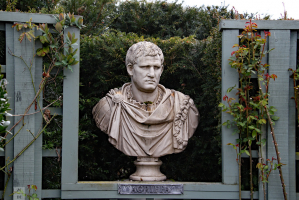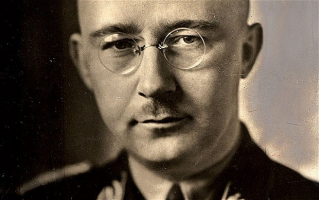Top 6 Interesting Facts About Marcus Aurelius
Roman Emperor Marcus Aurelius is renowned for his valiant actions against the Germans and the Parthians. His philosophical mind is often praised for making him ... read more...a fearless dictator. His wise leadership contributed to the Roman Empire's golden age. The most revered ruler in Roman history was Marcus. Today, let's follow Toplist to discover some interesting facts about Marcus Aurelius.
-
Marcus was born under the rule of Hadrian to the praetor Marcus Annius Verus, the emperor's nephew, and the heiress Domitia Calvilla. His mother and grandfather raised him when his father passed away when he was three. Hadrian chose Antoninus Pius, Marcus's uncle, as his new heir when his adopted son Aelius Caesar passed away in 138. Marcus and Lucius, the son of Aelius, were later adopted by Antoninus. That year, Antoninus succeeded Hadrian as emperor. Marcus, who was now the heir apparent, was taught Greek and Latin by teachers including Herodes Atticus and Marcus Cornelius Fronto. In 145, he wed Faustina, the daughter of Antoninus.
Marcus succeeded to the throne alongside his adopted brother Lucius Verus after Antoninus passed away in 161. Marcus, the imperial heir, was taught crucial principles like self-control and civic morality, which he would later come to exemplify. After Antoninus's lengthy and successful reign, Marcus was crowned emperor at the age of 40.
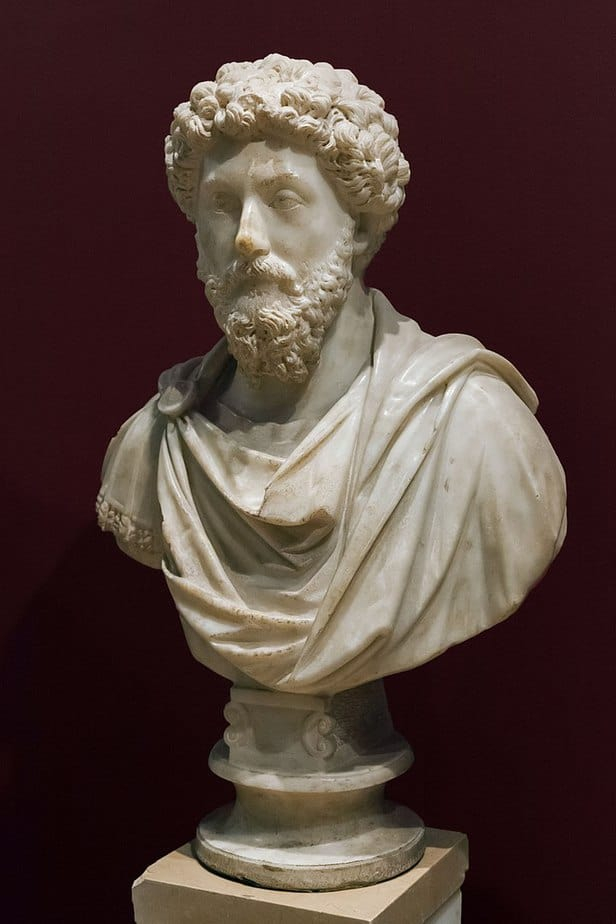
Photo: discoverwalks 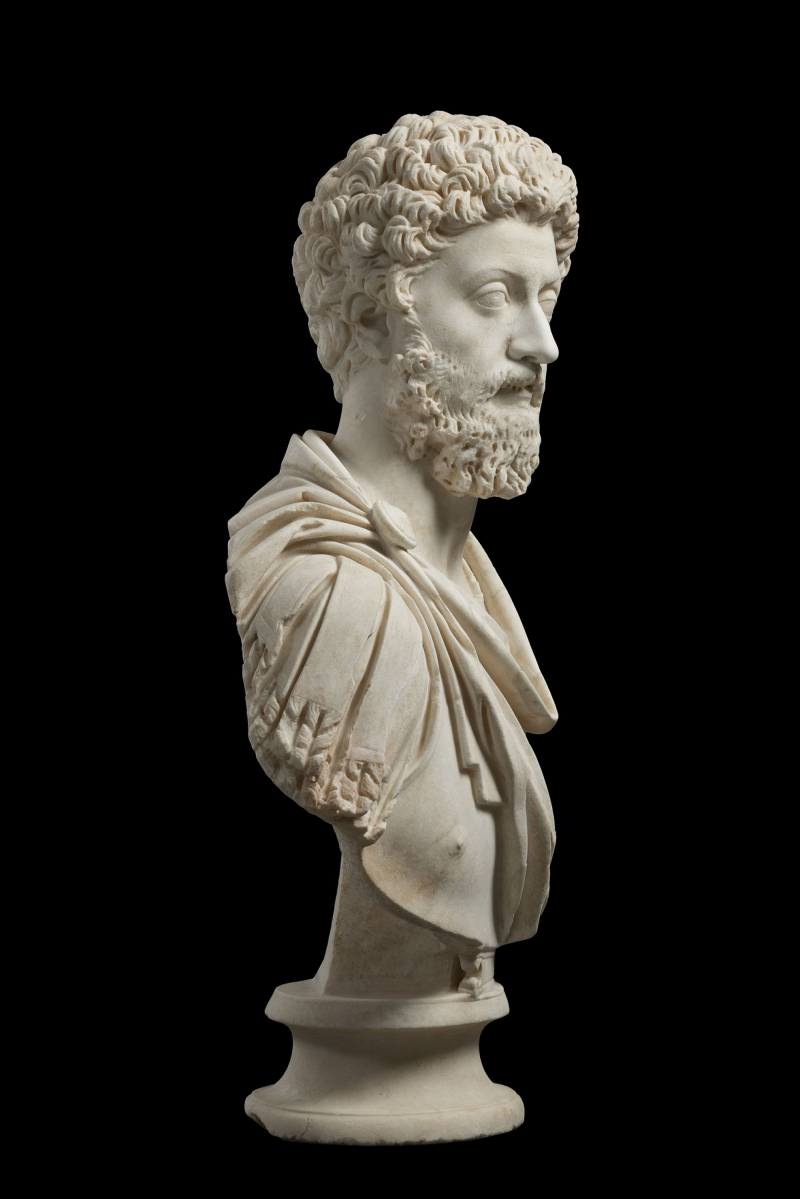
Photo: fondazionetorlonia -
One of the interesting facts about Marcus Aurelius is he hailed from a well-off, powerful political family. The Caelian Hill, a fashionable neighborhood with lots of aristocratic villas, was where his family lived.
Roman Italo-Hispanic heritage was present in Marcus's paternal line. Marcus Annius Verus served as his father (III). A branch of the gens Annia, which claimed to be descended from Numa Pompilius and have Italic origins, relocated to Ucubi, a tiny hamlet in Iberian Baetica to the southeast of Cordoba. The Annii Veri, a branch of the Aurelii rooted in Roman Spain, became well-known in Rome in the latter part of the first century AD. Marcus's grandpa Marcus Annius Verus (II) was elevated to the patrician status in 73–74, while his great-grandfather Marcus Annius Verus (I) served as a senator and former praetor, according to the Historia Augusta. Marcus belonged to the Nerva-Antonine dynasty through his grandmother Rupilia Faustina; Rupilia and her step-sister, Hadrian's bride Sabina, were raised by Trajan's sororal niece Salonia Matidia.
Domitia Lucilla Minor, commonly known as Domitia Calvilla, was Marcus' mother and the daughter of Roman aristocrat P. Calvisius Tullus. She received a sizable fortune from her parents and grandparents, which Pliny detailed in great detail in one of his letters. Her inheritance contained the Horti Domitia Calvillae (or Lucillae), a villa on the Caelian hill of Rome, as well as sizable brickworks on the outskirts of Rome, a lucrative business at a time when the city was experiencing a construction boom.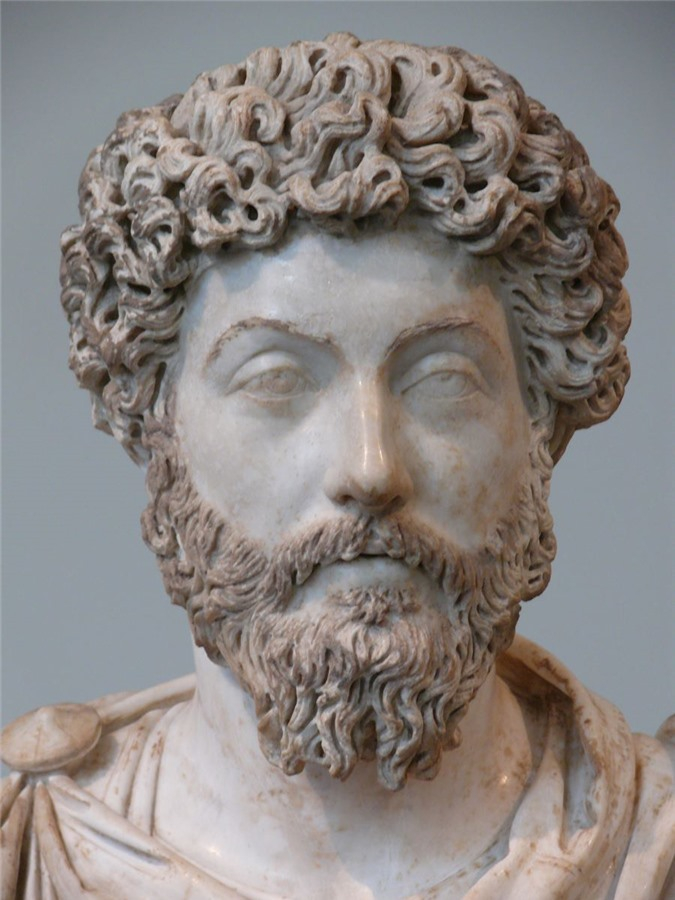
Photo: doanhnghiepvn 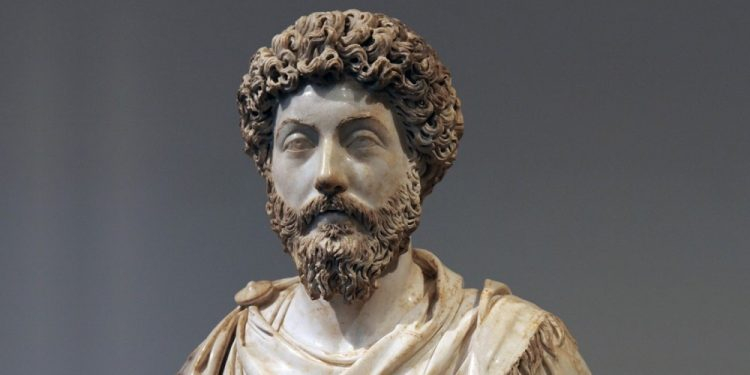
Photo: victor-mochere -
Marcus was given the lengthy name Caesar Marcus Aurelius Antoninus Augustus, which was the title of an emperor at the time. At his urging, his stepbrother Lucius Verus, then known as Lucius Aurelius Verus Augustus, was thereafter appointed co-emperor. One of the interesting facts about Marcus Aurelius is that for the first time in its history, Rome had two emperors who essentially had the same constitutional powers.
The brothers' leadership was well-liked by the Roman populace, since it was less expensive than that of their predecessors. They promoted free speech, allowing authors to openly criticize the ruling couple.
Marcus was an effective ruler on his own, in large part because he had leadership experience prior to taking the throne. He respected the Senate enough to seek their approval before making financial decisions, even though he was the emperor of Rome and did not need to. He was also well-liked by legal experts who characterized him as a "prudent and conscientious emperor who was well-versed in the law."
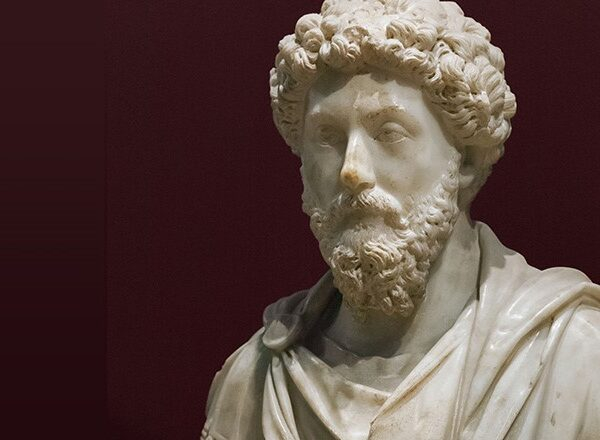
Photo: knowledge.wharton.upenn.edu 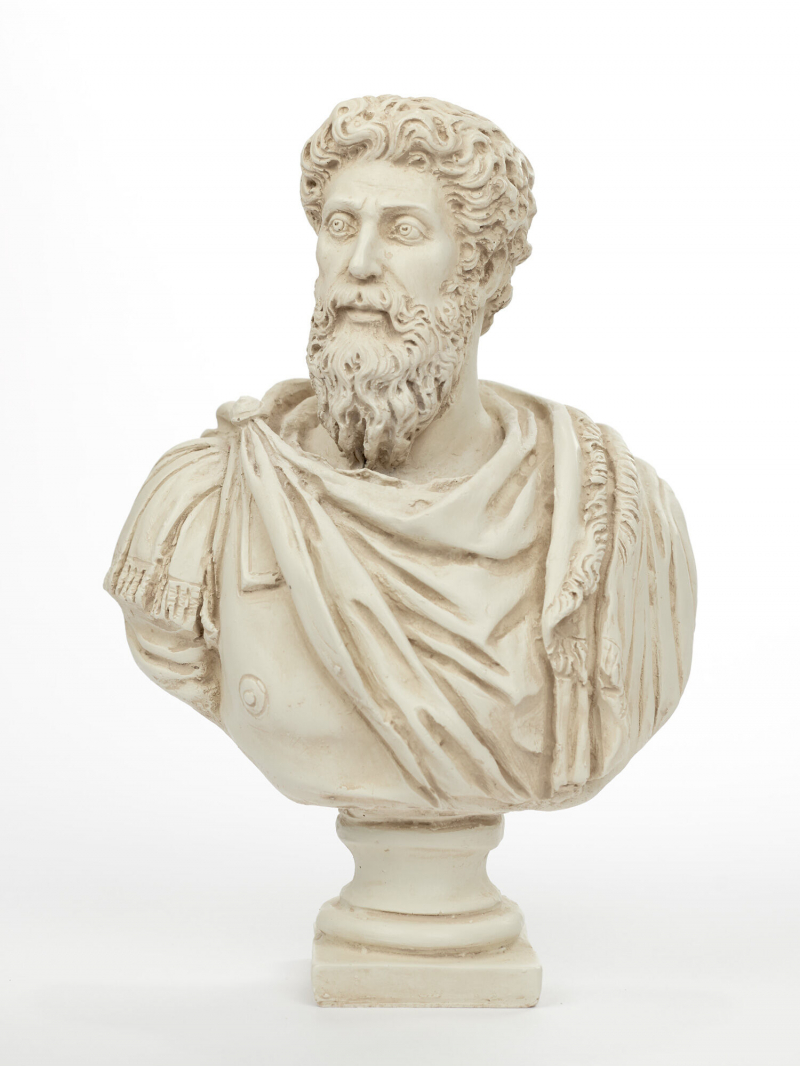
Photo: der-roemer-shop.de -
Numerous conflicts and a sickness that nearly wiped out the population occurred during Marcus' tenure. He and his brother Lucius fought the Parthians for control of the east in the 160s. They were successful in large part thanks to General Avidius Classics, who will be covered later. Despite their victory over the Parthians, the returning soldiers brought with them the terrible Antonine disease, which killed tens of thousands of Roman civilians over a period of several years. Five to ten million people perished as a result of the Antonine Plague, which struck the Roman Empire in 165 or 166.
The same year, Germanic tribes that had pillaged a Roman city forced Marcus and Verus into yet another conflict. Marcus was unfortunately left on his own when Lucius Verus passed away in the middle of the campaign. Rome had only one emperor: Marcus. He never regarded this obligation lightly. Marcus marched to force the Germans back across the Danube on his own now. The Romans were able to turn the tide of the assault after a difficult beginning. By attacking certain tribes and negotiating with others to pit the Marcomanni against one another, Marcus and his troops crossed the Danube. He mediated a settlement in 175 that permitted the homecoming of thousands of Roman soldiers, as well as the enlistment of numerous Germanic warriors into the Roman legions.
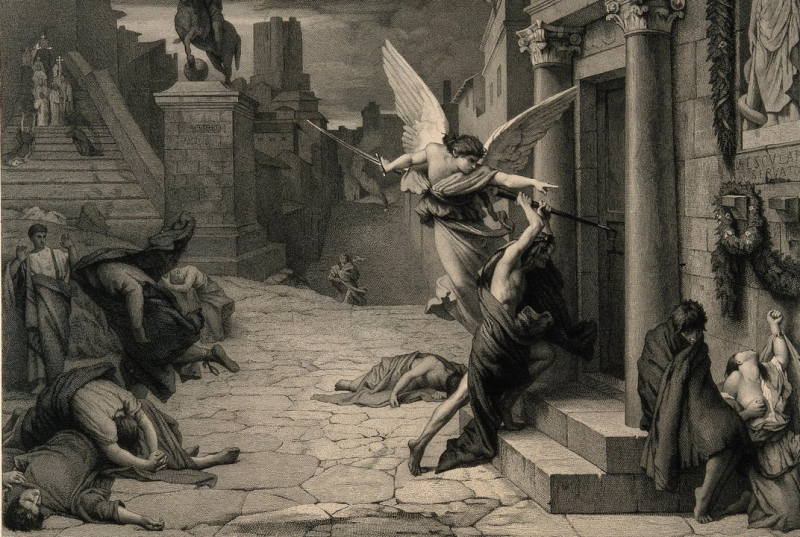
Photo: Antonine Plague - smithsonianmag 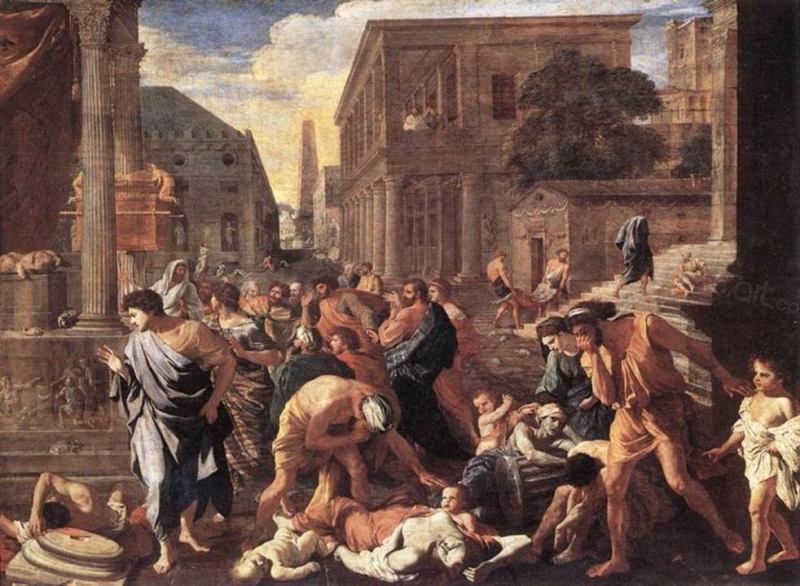
Photo: Antonine Plague - en.minghui.org -
The fact that Marcus Aurelius published a book titled "The Meditations," which included the emperor's inner thoughts, is an intriguing detail about him. Marcus composed his Meditations in Greek while on a campaign between 170 and 180 as a tool for self-improvement and direction. If this piece of writing originally had a title, it has now been lost. Later, the title "Meditations" and others, such as "To Himself," were used. He had a logical intellect, and the spirituality and philosophy of the Stoics were evident in his notebooks. The book Meditations is still regarded as a literary ode to a government based on duty and service. Volume 2 of the Harvard Classics contains Meditations' English translation by George Long. Christina of Sweden, Frederick the Great, John Stuart Mill, Matthew Arnold, and Goethe were all fans of the book, according to Hays, and contemporary personalities like Wen Jiabao and Bill Clinton also hold it in high regard. Many commentators have regarded it as one of the finest philosophical works.
The extent of Marcus's writings' posthumous circulation is unknown. Although he did not directly mention Meditations, Julian the Apostate was fully aware of the popularity of his teachings based on stray references in ancient literature. He was also aware of his reputation as a philosopher. The book remained in the academic traditions of the Eastern Church, and Arethas of Caesarea in the 10th century and the Byzantine Suda include the first surviving quotations from it as well as the first known mention of it by name ('Marcus's writings to himself') (perhaps inserted by Arethas himself). From a manuscript that was supposedly destroyed not long after, Wilhelm Xylander (né Holzmann) published it for the first time in Zurich in 1558. The Vatican Library houses the earliest full manuscript copy that has survived, which is from the 14th century.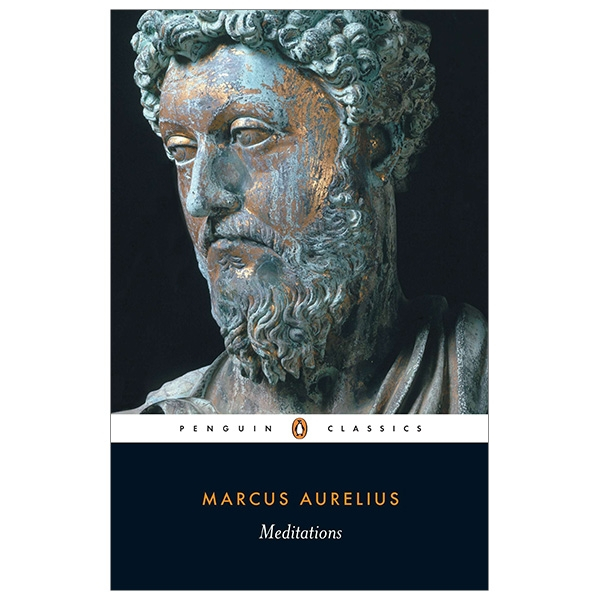
Photo: fahasa 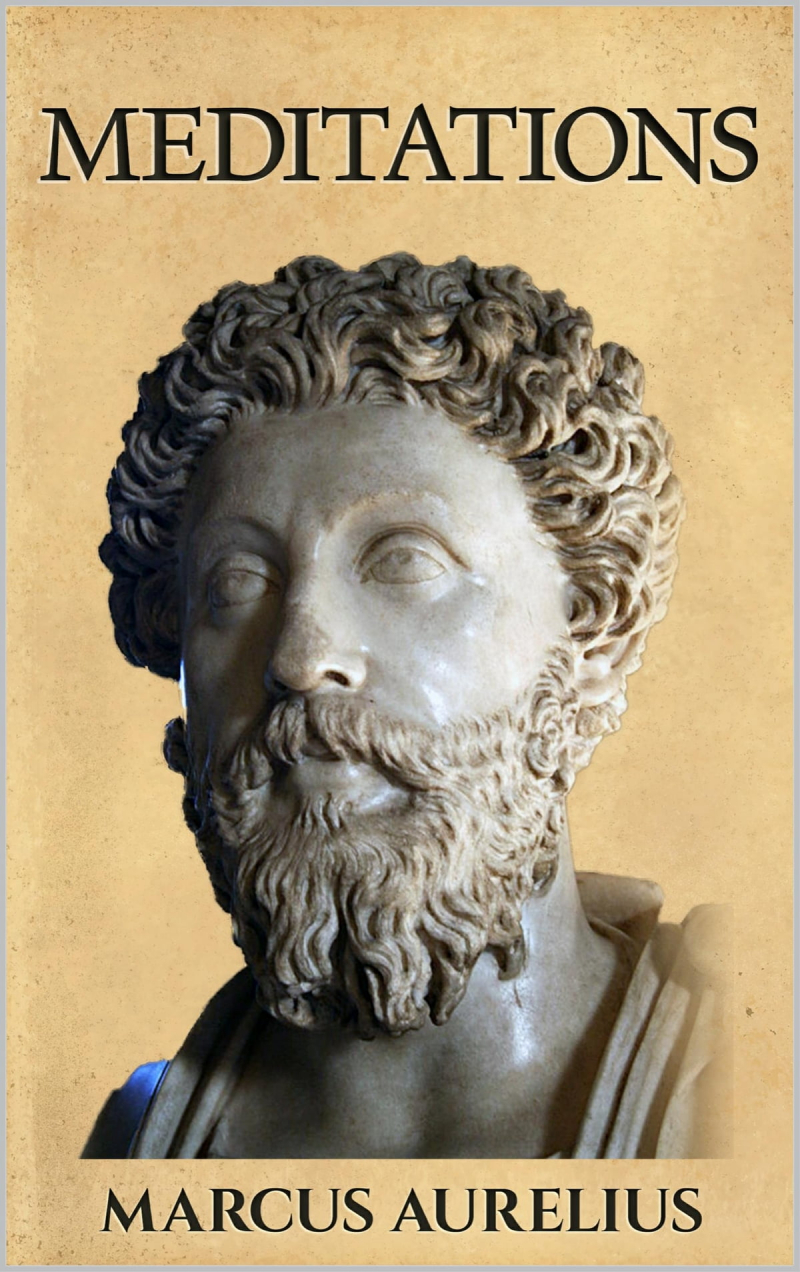
Photo: kobo -
Marcus passed away on March 17, 180, at the age of 58, in his military quarters in Sirmium or Vindobona (in the province of Pannonia Superior, today's Vienna) (province of Pannonia Inferior, modern Sremska Mitrovica). His ashes were brought back to Rome, where they were kept in Hadrian's tomb (today's Castel Sant'Angelo) until the Visigoths captured the city in 410. He was quickly deified after this. A column and a temple were constructed in Rome as remembrances of his campaigns against the Germans and Sarmatians. One of the interesting facts abour Marcus Aurelius is his passing is regarded by some academics as signaling the end of the Pax Romana.
The 207-year period known as Pax Romana, sometimes known as Pax Augusta, was characterized by stability and peace in the Roman Empire. Caesar Augustus established the Roman Principate (or first period) in 87 AD, and it lasted until Marcus Aurelius' demise in 180 AD. Roman Pax witnessed the apex of the empire's lands. A third of the world's population, or about 70 million people, lived in the Roman lands throughout these two centuries.
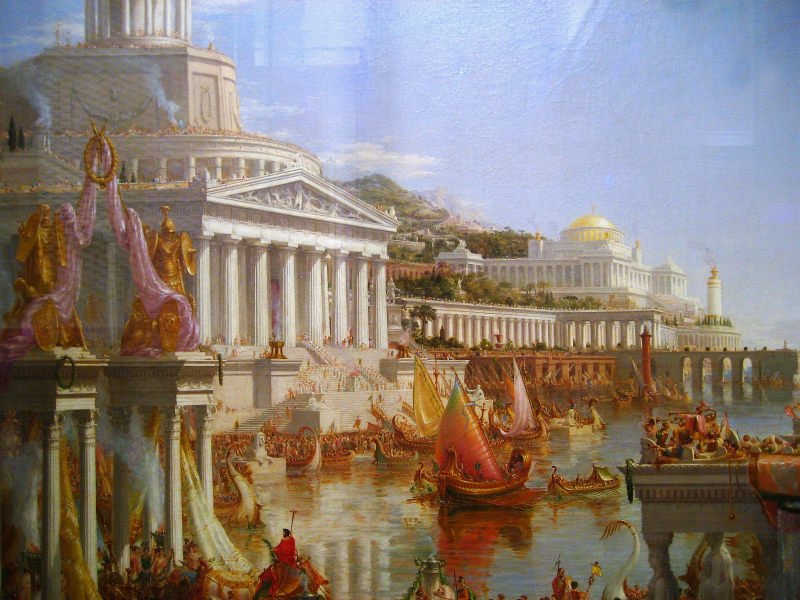
Photo: Pax Romana - pinterest 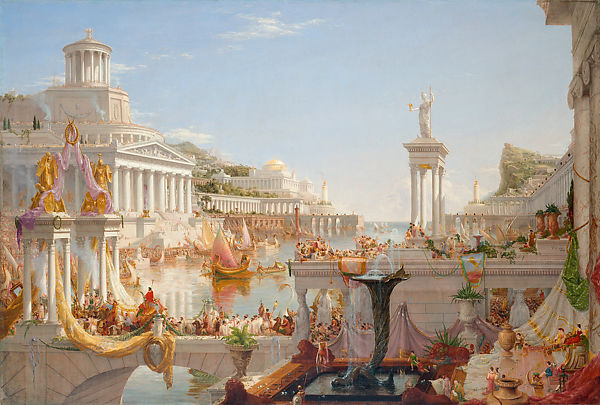
Photo: Pax Ronama - metmuseum









